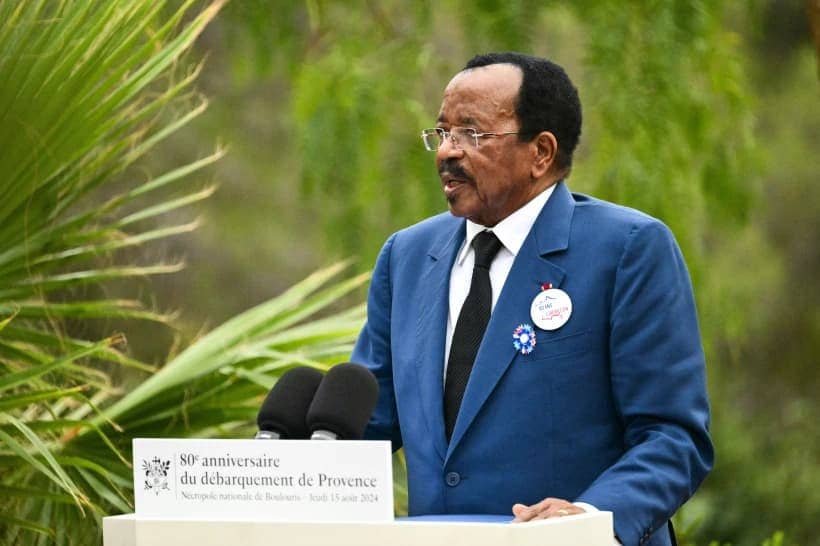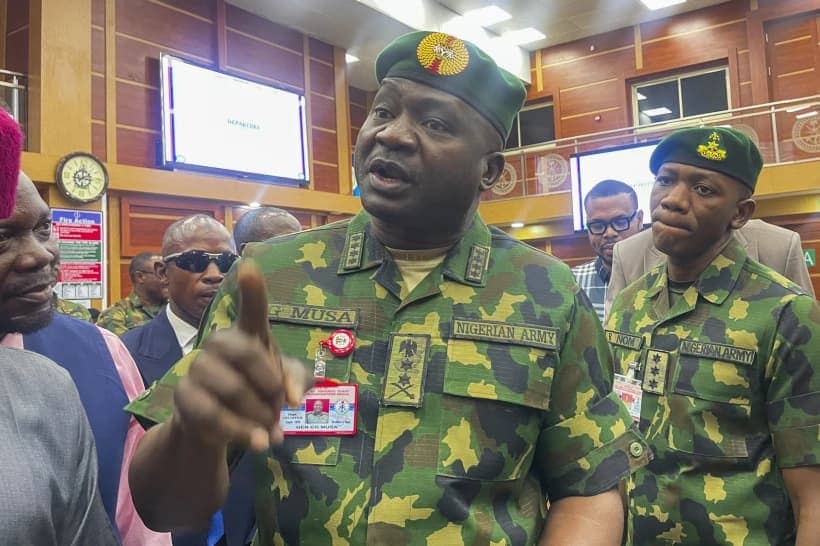YAOUNDE, Cameroon – On August 19, the world once again commemorated humanitarian workers who get killed or injured as they work to save lives. It’s been a particularly trying year, as activists face unprecedented hurdles to assist people in pre-existing crises in 54 countries, plus a further nine which have been catapulted into situations of need by the COVID-19 pandemic.
Amongst the humanitarians risking their lives to save others are workers of Catholic Relief Services (CRS), the official overseas development arm of the U.S. Conference of Catholic Bishops.
In Africa, CRS is present in 40 countries. From an uptick in violence in the Sahel to locust swarms in East Africa and unrest in Central Africa, the CRS has work to do, according to Kim Pozniak, CRS’ Senior Director of Global Communications.
A bomb attack on the Canal Hotel in Baghdad in 2003 that killed 22 people, including UN official Sergio Vieira de Mello, caused the United Nations General Assembly to formalize the day as World Humanitarian Day in 2009. In an exclusive interview with Crux, Kim Pozniak of CRS called such attacks “an affront to all of humanity.”
Pozniak said that despite the risks, CRS’ staff “embodies what it means to live a mission-driven life. For many, it’s that passion that grounds the work.”
Following are excerpts of the Crux interview.
Crux: How big are CRS humanitarian interventions in Africa in 2019 and the beginning of 2020?
Pozniak: CRS currently works in more than 40 countries across the continent, with programming that includes a range of humanitarian activities from large, multi-sectoral emergency food distributions to disaster relief to child protection and work with refugee populations.
Which areas in the continent drew the greatest attention, and why?
There are several areas of great concern depending on the region.
For example, in West Africa, the uptick in violence in the Sahel has led to mass displacement across Niger, Mali and Burkina Faso. This surge in violence is threatening the stability of the entire region and has led to unprecedented humanitarian need. According to the United Nations, more than 20 million people, half of them children, are in need of life-saving assistance and protection in the Sahel– the highest number ever recorded.
In East Africa, the combined impacts of desert locust swarms and rising COVID-19 cases pose a considerable threat to communities’ access to food. In much of South Sudan, hunger and lack of food have already been major concerns, particularly in remote and vulnerable communities.
In Central Africa, we’re very much tracking the unrest in the DRC. More broadly, the continued spread of COVID-19 makes each of these situations more complex and dynamic while making the food insecurity that much worse.
What risks have CRS workers been facing on the ground as they struggle daily to help struggling people?
All of our staff working to bring our programs to the world’s most vulnerable people are making sacrifices-from those who have to leave their families for long stretches of time to be in the field to those whose jobs take them into complex operating environments where safety can be a concern.
What’s more, the pandemic is making it riskier for our frontline staff to do their jobs despite our rigorous safety protocols. But for so many of our staff, the work is a calling. They are motivated by a belief that all people deserve access to food, water, and education.
What do those risks tell you about the power to sacrifice for others?
Our staff embodies what it means to live a mission-driven life. In fact, for many, it’s that passion that grounds the work. For example, one of our staff who works for us in Nigeria said of her job, “There is strength in us that can carry us through.”
What would you tell those who attack humanitarian workers, and governments that suspect humanitarian workers of being engaged in spying?
As a humanitarian organization, our mission is to assist the most vulnerable based on need, not creed. We work as a neutral actor and attacks on humanitarian workers are an affront to all of humanity.
In terms of funding, what message do you have for your partners who have assisted you financially in the past years, and who are likely to keep supporting you?
We continue to be extremely grateful for the support of American Catholics and others of goodwill who year-after-year contribute to our mission through donations, volunteer work and advocacy efforts. However, the humanitarian needs are staggering. As COVID-19 affects every country around the world, including most countries in Africa, their support is needed now more than ever to meet the ever-growing number of crises.
Moving forward, what shape do you expect humanitarianism to take in Africa?
As a result of the dual threats imposed by the COVID-19 pandemic and climate change, we expect there to be a continued need for urgent international support across the continent, especially in places where these threats are impacting the ability of large numbers of people to put food on the table.
At the same time, we’re doubling down on our efforts to scale up our programming so that we can have the greatest impact on the largest number of people.
One of the ways we’re doing this is through strengthening our vast network of local partners. We believe that local organizations and communities who are closest to the challenges of poverty are also the architects of their own development, and that strengthening the capacity of local partner organizations—whether they are faith based or secular—is important for advancing human development.














